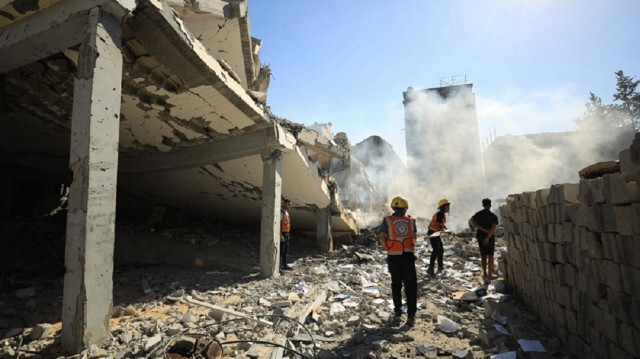Croatia Declares Montenegrin Politicians Undesirable
Croatia's Ministry of Foreign and European Affairs has taken a significant diplomatic step by declaring three Montenegrin politicians as persona non grata. This move is in response to actions deemed detrimental to bilateral relations.
Published July 26, 2024 - 00:07am

Image recovered from dnevnik.hr
Croatia's Ministry of Foreign and European Affairs has officially informed Montenegro that it has declared three prominent Montenegrin political figures as persona non grata. The Ministry issued a note to the Embassy of Montenegro in Zagreb, listing these individuals who are now banned from entering Croatia.
The politicians in question are Andrija Mandić, President of the Montenegrin Parliament, Milan Knežević, a member of the Montenegrin Parliament, and Aleksa Bečić, Vice President of the Montenegrin Government. The Croatian Ministry accused them of systematically undermining good neighborly relations with Croatia and continually abusing Croatia for internal political purposes.
According to the Croatian Ministry's statement, this measure is a response to persistent actions that have negatively impacted bilateral relations and Montenegro's European integration efforts. The Ministry expressed regret that the majority in the Montenegrin Parliament chose to ignore Croatia's repeated calls to refrain from actions that could adversely affect mutual relations.
The Ministry further highlighted that good neighborly relations are a crucial aspect of the European Union's enlargement process, as well as the stabilization and association process. These relations also serve as a key criterion for assessing progress in Montenegro's accession process to the European Union. Croatia has consistently supported Montenegro's European path and has advocated for progress in the accession process.
However, the ministry noted that the ongoing actions of these Montenegrin officials are incompatible with the stated goal of Montenegro's EU membership. The officials' behavior is not seen as well-intentioned or neighborly towards Croatia and does not align with the European spirit and values that Montenegro aspires to uphold.
This diplomatic move follows a series of events, including Montenegro's recent parliamentary resolution on genocide, which further strained the relationship. The Croatian Ministry lamented Montenegro's disregard for Croatia's appeals, highlighting the specific conduct of the mentioned politicians that stood out and led to this decision.
Croatian media outlets covered various aspects of this development, with some sources providing additional commentary on the implications of such a diplomatic rift. For instance, the incident was seen as part of a broader, ongoing tension between the two neighboring countries, reflecting deeper issues within the region's geopolitical landscape.
As Croatia continues to advocate for a European Montenegro, it emphasizes the importance of adhering to European values and fostering positive bilateral relations. The expectation remains that Montenegro will align its actions with these values and work towards fulfilling the conditions and criteria set out in the EU accession process.
In conclusion, Croatia's decision to declare these Montenegrin politicians undesirable is a significant diplomatic statement. It underscores the importance of good neighborly relations and adherence to European values in the context of EU enlargement and regional stability.





